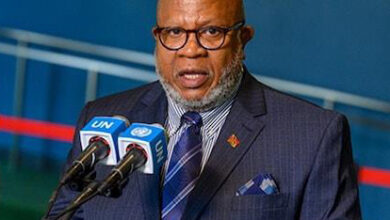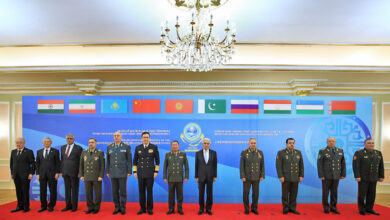Prime Minister Narendra Modi visits Egypt
Prime Minister Narendra Modi’s visit to Egypt during June marked a new phase in the decades-old bilateral relationships whose foundations were built on the strength of both countries working together in the Non-Aligned Movement.

Now with the world moving away from that phase to multi-polarity, India and Egypt decided to elevate the ties to Strategic Partnership which took forward the momentum built during Egyptian President Mr Abdel Fattah Al-Sisi’s visit to India as the Chief Guest during the Republic Day celebration this year.
As a mark of special gesture, the Government of Egypt bestowed the country’s highest honour. The Order of the Nile on Prime Minister Modi who described his first state visit to the country as historic. In fact, it was after a gap of 26 years, that an Indian Prime Minister paid a visit to Egypt.
“It is with great humility that I accept the Order of the Nile. I thank the Government and people of Egypt for this honour. It indicates the warmth and affection they have towards India and the people of our nation,” Prime Minister Modi said after receiving the honour at a glittering ceremony.
Among those who were awarded the top honours by Egypt have included late Sultan Qaboos of Oman, Nelson Mandela and President Suharto of Indonesia.
On his way back from the State Visit to the United States, PM Modi was in Cairo for two days on June 24-25, keeping a packed schedule that included bilateral discussions with President Al Sisi across several areas.
These included trade and investment, defence and security, renewable energy, green hydrogen, health, IT, digital payment platforms, pharma and people-to-people ties, besides witnessing the signing of three Memoranda of Understanding in Agriculture, Archaeology and Antiques and Competition Law.

June 24, 2023.
The two countries have held periodic military exercises, and long back in fact, there was a proposal to develop a fighter jet jointly between Egypt, India and Yugoslavia.
A Landmark ‘India Unit’ in the Egyptian Cabinet
The nature of the ties and its upward climb can be gauged from the establishment of the ‘India Unit’ in the Egyptian Cabinet which is seen as a mechanism to steer bilateral collaborations.
The Unit was set up after President Sisi’s visit to India and is headed by Prime Minister of Egypt Mustafa Madbouly.
Its members consist of a number of Ministers and senior officials.
On Day One of the visit, PM Modi met the members of the Unit who appreciated the positive response from their Indian counterparts and emphasised that they were looking forward to undertake cooperation in numerous sectors.
On his part, PM Madbouly and his Cabinet colleagues outlined the activities the India Unit undertook and proposed new areas of cooperation.
They appreciated the positive response from their Indian counterparts, and said they look forward to deepening India-Egypt bilateral relations in various sectors.

Diplomatic and Economic Cooperation and G 20
During the bilateral talks at the leadership level, PM Modi and President Sisi discussed further cooperation in G 20, highlighting the issues of food and energy insecurity, climate change and the need for the Global South to have a concerted voice.
The Indian Prime Minister said he looked forward to welcoming President Sisi in New Delhi in September 2023 for the G20 Leaders’ Summit.
During Mr Modi’s visit, two important announcements were made. The first was to start a direct flight between New Delhi and Cairo and the other was to set up a Centre of Excellence of Information Technology at Dar Al Ifta, a premier Islamic institute established in 1895 Cairo. Along with the Al Azhar University and Egyptian courts, the Dar – meaning an educational institution – plays an important role in interpretation of contemporary Islamic jurisprudence.





